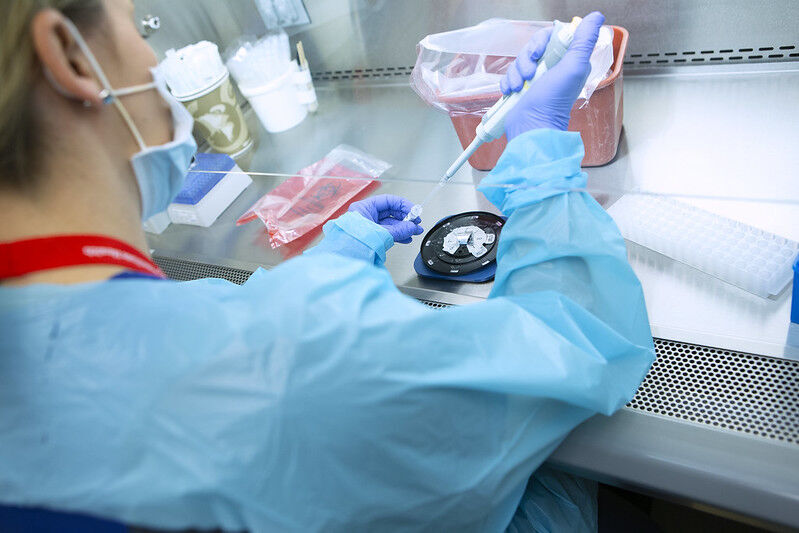The importance of antibody testing
September 13, 2020
Antibody testing is a process that is quickly becoming the most efficient way to test for COVID-19 spread and to determine who has had coronavirus.
Iowa State is teaming up with LifeServe to test donated blood for COVID-19 antibodies. Students are encouraged to donate blood and consent to this test as it can help public health officials study immunity and asymptomatic COVID-19 spread in communities.
These test results will also be reported to the Iowa Department of Public Health for further understanding and investigation into the impact of the virus among a healthy population, namely college students.
College students and those in the “18-29” age category are less likely to be impacted severely by COVID-19, though severe cases have been reported.
While young adults may be impacted less directly, they are still able to spread the virus to others who are older or have underlying health conditions.
Dr. David Baum, clinical professor and serology section leader at Iowa State’s Veterinary Diagnostic Laboratory, explained the importance of conducting antibody testing.
“Antibody testing is important because it helps us to understand whether or not people have been previously infected with the pathogen in question,” Baum said. “And that’s important because the antibody comes about in adults — it is only acquired by either having been injected with the antibody or it has been produced by the person after they’ve been infected by the pathogen.”
He continued to say the presence of these antibodies is almost always an indicator for immunity.
“Not that the antibody itself is what makes you immune, but it’s an indication that your body has mounted an immune response that also includes white blood cells that are specialized to attack the pathogen, but also the antibodies that are created to bind to the pathogen,” he said.
He also said just because the antibodies are no longer present does not mean an individual’s immunity has also disappeared.
“Right now we really don’t know how long the antibody lasts in the serum of patients, but we would expect at some point that it will disappear,” Baum said. “But the absence of antibodies does not mean that there is no longer an immune response possible. Even if there’s antibody present, it is still possible for the person to be reinfected with the pathogen.”
Baum said the difference between someone who is immune and someone who is not is the person who is immune will create a faster immune response and attack the presence of the pathogen, similarly to how the influenza vaccine works.
“Whatever clinical signs or whatever symptoms may have appeared are going to be less and have a shorter duration,” he said.
Baum said regardless of when an individual had COVID-19, getting tested for antibodies should be encouraged.
“With the endemic present, it would behoove each of us to have our serum tested for the presence of antibody,” he said. “Then we will know if there’s antibody present, that we have been infected. Then each person needs to ask, ‘well if I’ve been infected, was I sick?’ If the answer to that is no, then the response to the antibodies — there’s a good chance that you are immunized against the next infection.”
He also reiterated the fact that being immune does not prevent infection, but instead boosts the immune system’s response to make it quicker and stronger.
The Veterinary Diagnostic Laboratory had previously only been testing for antibodies in livestock as well as processing Iowa State’s COVID-19 tests, but because of this partnership they will also be testing for antibodies in human blood donations as well.
Those that wish to make an appointment for a blood donation can do so by calling 800-287-4903 or by making an appointment on LifeServe’s website.

















